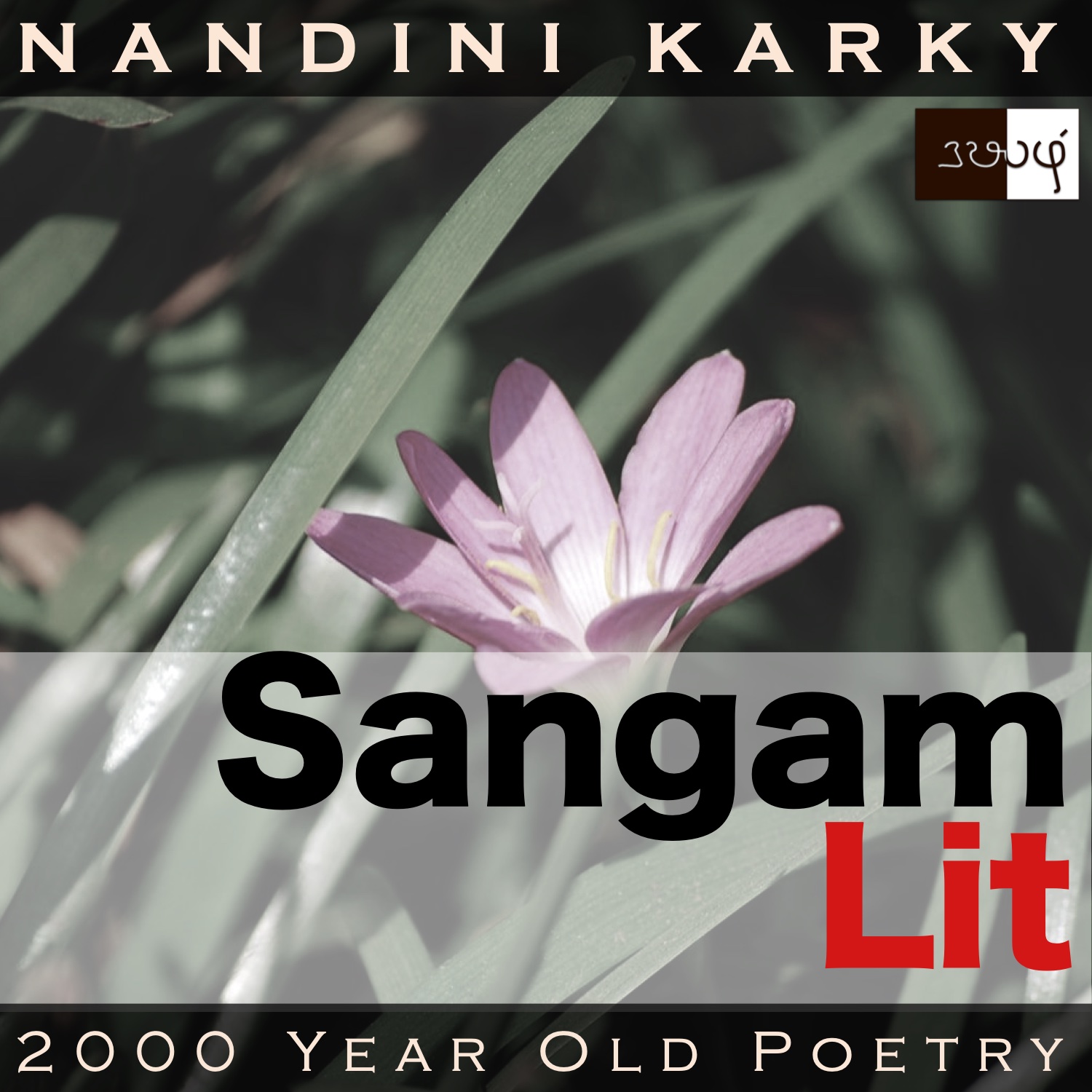Podcast: Play in new window | Download
Subscribe: Apple Podcasts | Spotify | Amazon Music | Android | iHeartRadio | TuneIn | RSS | More

In this episode, we see how the changing seasons affect the growing crops and the pining lady, as depicted in Sangam Literary work, Kurunthogai 82, penned by Kaduvan Mallanaar. The verse is situated in the hills of ‘Kurinji’ and speaks in the voice of the lady to the confidante, in response to the confidante’s consolation that the man will return soon.
வார் உறு வணர் கதுப்பு உளரி, புறம் சேர்பு,
”அழாஅல்” என்று நம் அழுத கண் துடைப்பார்;
யார் ஆகுவர் கொல்?-தோழி!-சாரல்
பெரும் புனக் குறவன் சிறு தினை மறுகால்
கொழுங் கொடி அவரை பூக்கும்
அரும் பனி அற்சிரம் வாராதோரே.
Flowing tears and flowering plants are the twin images of this verse! In the opening words ‘வார் உறு வணர் கதுப்பு’ meaning ‘long and curly hair’, the texture of someone’s tresses is sketched for us. The phrase ‘அழுத கண் துடைப்பார்’ meaning ‘he would wipe away the tears’ talks about a compassionate response to another’s sorrow. From the fields of the mind, we turn to gaze at ‘huge fields of the mountain farmer’ in ‘பெரும் புனக் குறவன்’. Here, there’s mention of two different plants – ‘சிறு தினை’ referring to ‘little millets’ as well as ‘அவரை’ referring to the ‘field beans’. Ending with the words ‘அரும் பனி அற்சிரம் வாராதோரே’ meaning ‘he who returns not even in the harsh winter’, the verse gives hints about the nature of a season as well as that of a person!
Tears and tresses, winter and wild crops dot the landscape of this verse. The context reveals that the man and lady had been leading a happy, married life when the man parted away to gather wealth. The lady languishes in his absence. Perceiving her friend’s troubled state, the confidante offers consolations insisting that the man will return soon. Replying to the confidante’s words, the lady says, “Parting those flowing and wavy tresses, he caressed my back, wiped my tears and said, ‘Do not cry’! Who has he become now, my friend? In the slopes, a mountain dweller owning huge fields, had planted ‘avarai’, alternating it with little millets. Making the fleshy creeper of this ‘avarai’ open out its buds, the harsh cold season is here and yet, he has not returned!” With these words, the lady wonders aloud to her friend where the past kindness of her man has vanished away.
What do flowering bean plants have to do with the overflowing sadness in the lady’s heart? Let’s listen to the lady’s words a little closely to find out. The lady starts by recollecting a past scene when she was crying, thinking that the man was about to leave. At this time, the man had come near her, parted those wavy tresses on her back and held her close, asking her not to shed those tears. Mentioning this scene, the lady turns to ask her confidante, ‘What has happened to him now?’ Then, she goes on to explain why she feels so, saying that in the mountain farmer’s fields, the ‘avarai’, which had been sown after the yield of little millets, had flowered. That these crops had flowered meant that it was the harsh winter season and yet, the man seems to take no pity on her lonely suffering, still choosing to stay away, the lady concludes.
It’s a cry of ‘how can he let me suffer alone in this terrible season of winter’! The season may be great for the blooming of those ‘avarai’ plants but it wreaks havoc on the mind of the lonely lady. When we look beyond the repeated theme of the pining lady, we can spot a fascinating insight about crop rotation in this little verse. Casting the spotlight on the mountain farmer, who alternates his little millets with field beans, the verse shows a classic instance of crop rotation, wherein cereals are alternated with legumes. One depletes the soil of nitrogen and the other replenishes it! And, without any degrees specialising in soil chemistry, these ancients seem to have found the way of keeping their soils rich, year after year, even as they harvested mounds of millets. Stunning to note how the Sangam poets have applied this very crop rotation principle in their work by sowing facets of outer life amidst concerns of the mind, and thus, leaving this bed of poetry fertile, yielding to all the following generations, a bountiful harvest of meaning!




Share your thoughts...